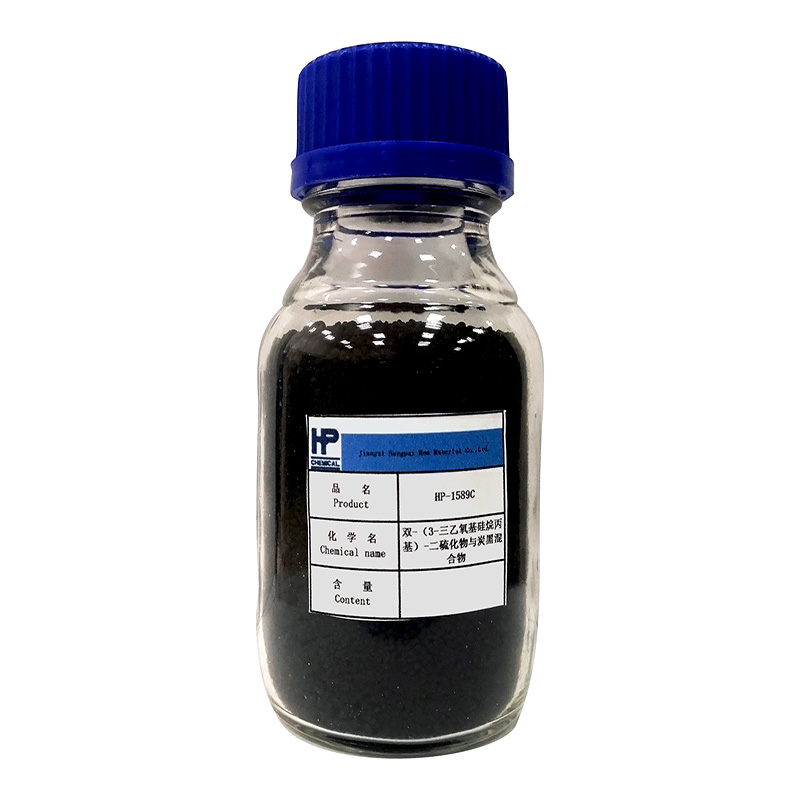What Research Has to Say About Glutathione Supplements
Glutathione is an antioxidant found naturally in your body. Also known as GSH, it is produced by the liver and nerve cells in the central nervous system and is made from three amino acids: glycine, L-cysteine, and L-glutamate. Glutathione can help metabolize toxins, break down free radicals, support immune function, and more. Silane Coupling Agent Kh560

This article discusses the antioxidant glutathione along with its uses and purported benefits. It also provides examples of how to get more glutathione in your diet.
Dietary supplements are not regulated the way drugs are in the United States. This means the Food and Drug Administration (FDA) does not approve them for safety and effectiveness before products are marketed. When possible, choose a supplement tested by a trusted third party, such as USP, ConsumerLab, or NSF. However, even if supplements are third-party tested, that doesn’t mean they are necessarily safe for all or effective in general. Therefore, talking to your healthcare provider about any supplements you plan to take and checking in about potential interactions with other supplements or medications is important.
Supplement use should be individualized and vetted by a healthcare professional, such as a registered dietitian, pharmacist, or healthcare provider. No supplement is intended to treat, cure, or prevent disease.
Glutathione depletion is thought to be associated with certain health conditions, such as neurodegenerative disorders (e.g., Parkinson's disease), cystic fibrosis, and age-related diseases, as well as the aging process. Still, this does not mean that glutathione supplementation can necessarily be helpful for these conditions.
Glutathione has been studied for a wide range of uses, including but not limited to:
However, there is limited scientific evidence to support using glutathione to prevent or manage any health condition.
Studies have suggested that inhaled or oral glutathione may help improve lung function and nutritional status in people with cystic fibrosis.
A systematic review evaluated studies looking at antioxidants' effects on chemotherapy-related toxicities. Eleven of the studies analyzed included glutathione supplementation.
Intravenous (IV) glutathione may be used in conjunction with chemotherapy to lessen the toxic effects of chemotherapy. In some cases, it may make it more likely that the chemotherapy regimen can be completed. More research is still needed.
In one study, IV glutathione (600 milligrams twice daily for 30 days) significantly improved symptoms associated with previously untreated Parkinson's disease. However, the study was small, only consisting of nine patients.
This video has been medically reviewed by Meredith Bull, ND.
Glutathione is not considered an essential nutrient since it is produced from other amino acids in the body.
Low levels of glutathione in the body can occur with poor nutrition, environmental toxins, stress, and increased age. Low glutathione levels have been associated with an increased risk of cancer, diabetes, hepatitis, and Parkinson's disease. However, this doesn't necessarily mean supplementing with glutathione decreases your risk.
Since glutathione levels in the body aren't usually measured, there is not much information on what happens to people with low glutathione levels.
Due to a lack of research, little is known about the side effects of using glutathione supplements. No side effects have been reported with a high glutathione intake from diet alone.
However, there's some concern that using glutathione supplements may cause cramping and bloating or allergic reactions, with symptoms like a rash. In addition, inhaled glutathione has caused breathing problems in some people with mild asthma. If any of these side effects occur, stop taking the supplement and discuss it with your healthcare provider.
Long-term use of glutathione supplements may lower zinc levels.
Glutathione supplements are generally recognized as safe.
There is not enough data to show that it is safe for pregnant or nursing individuals. Therefore, glutathione supplementation is not recommended for use if you are pregnant or breastfeeding. Always talk to a healthcare provider before starting any supplement.
There is not enough scientific evidence to determine the proper dose of glutathione.
Various doses have been studied in research investigating specific medical conditions. The proper dose for you may depend on several factors, including your age, sex, and medical history.
In studies, glutathione doses given ranged from 250 to 1,000 milligrams daily. One study found that a minimum of 500 milligrams daily for at least two weeks was needed to increase glutathione levels.
In some cases, healthcare professionals administer glutathione through the use of an IV.
For some conditions, glutathione can also be inhaled and given through a nebulizer.
There is not enough information yet to determine whether glutathione toxicity can occur.
There is insufficient data to know how glutathione interacts with certain medications and other supplements.
Be sure to follow manufacturer directions for how to store supplements. It may vary depending on the form of the supplement.
Always keep medication and supplements out of reach of children.
Glutathione may come as a single supplement or combined with other ingredients.
Additionally, supplementing with other nutrients may help increase glutathione production in the body. These can include:
Glutathione is an antioxidant found naturally in your body.
Avoid taking glutathione when pregnant or nursing. There's not enough data to show that it's safe during these times.
Glutathione can help metabolize toxins, break down free radicals, support immune function, and more.
Research has found several severe adverse effects of IV glutathione, including the following:
However, according to the researchers, some of these complications may have been related to improper IV techniques or counterfeit glutathione.
No dietary supplement should be intended to treat a disease. There is limited research on glutathione for Parkinson's disease.
In one study, IV glutathione did improve symptoms in early Parkinson's disease. However, the study was small and only consisted of nine patients.
Another randomized clinical trial also found improvements in people with Parkinson's who took intranasal glutathione. However, it did no better than the placebo.
Glutathione is readily found in certain foods, such as fruits and vegetables. A study published in Nutrition and Cancer found that dairy products, cereals, and bread are generally low in glutathione, whereas fruits and vegetables have moderate to high amounts of glutathione. Freshly prepared meats are relatively high in glutathione.
It can also be obtained in dietary supplements, such as capsules, liquids, or in topical form. It can also be given intravenously.
Good food sources of glutathione include:
Glutathione dietary supplements and personal care products are available online and in many natural-food stores, drugstores, and vitamin shops. Glutathione supplements are available as a capsule, liquid, inhalant, topical, or can be given intravenously.
Be sure to look for supplements that are third-party tested. This means that the supplement has been vetted and has the amount of glutathione that the label claims, and it is free of contaminants. Supplements with labels from the USP, NSF, or ConsumerLab have been tested.
Glutathione has several roles in the body, including its antioxidant effects. Low levels of glutathione in the body are associated with many chronic conditions and diseases. However, there is not enough research to know if supplementing glutathione reduces the risk of those conditions or provides any health benefit.
Glutathione is made in the body from other amino acids. It is also found in the food we eat. Be sure to talk with your healthcare provider about the benefits and risks of supplementing before starting any dietary supplements.
Wu G, Fang YZ, Yang S, Lupton JR, Turner ND.Glutathione metabolism and its health implications.J Nutr.2004;134(3):489-492.doi:10.1093/jn/134.3.489
Pizzorno J. Glutathione!.Integr Med (Encinitas).2014;13(1):8–12.PMID: 26770075
Zhao J, Huang W, Zhang S, et al. Efficacy of glutathione for patients with cystic fibrosis: a meta-analysis of randomized-controlled studies. Am J Rhinol Allergy. 2020;34(1):115-121. doi:10.1177/1945892419878315
Ciofu O, Smith S, Lykkesfeldt J. Antioxidant supplementation for lung disease in cystic fibrosis [published online ahead of print, 2019 Oct 3]. Cochrane Database Syst Rev. 2019;10(10):CD007020. doi:10.1002/14651858.CD007020.pub4
Block KI, Koch AC, Mead MN, Tothy PK, Newman RA, Gyllenhaal C. Impact of antioxidant supplementation on chemotherapeutic toxicity: a systematic review of the evidence from randomized controlled trials. Int J Cancer. 2008;123(6):1227-1239. doi:10.1002/ijc.23754
Sechi G, Deledda MG, Bua G, et al. Reduced intravenous glutathione in the treatment of early Parkinson's disease. Prog Neuropsychopharmacol Biol Psychiatry. 1996;20(7):1159-1170. doi:10.1016/s0278-5846(96)00103-0
Weschawalit S, Thongthip S, Phutrakool P, Asawanonda P. Antiaging and antimelanogenic effects of glutathione.CCID.2017;10:147–153.doi:10.2147%2FCCID.S128339
Marrades RM, Roca J, Barberà JA, de Jover L, MacNee W, Rodriguez-Roisin R. Nebulized glutathione induces bronchoconstriction in patients with mild asthma.Am J Respir Crit Care Med. 1997;156(2 Pt 1):425-430.doi:10.1164/ajrccm.156.2.9611001
Steiger MG, Patzschke A, Holz C, et al. Impact of glutathione metabolism on zinc homeostasis in Saccharomyces cerevisiae. FEMS Yeast Res. 2017;17(4). doi:10.1093/femsyr/fox028
Minich DM, Brown BI. A review of dietary (phyto)nutrients for glutathione support. Nutrients. 2019;11(9):2073. doi:10.3390/nu11092073
Hasani M, Djalalinia S, Khazdooz M, et al. Effect of selenium supplementation on antioxidant markers: a systematic review and meta-analysis of randomized controlled trials. Hormones (Athens). 2019;18(4):451-462. doi:10.1007/s42000-019-00143-3
Martins ML, da Silva AT, Machado RP, et al. Vitamin C decreases reduced glutathione in chronic haemodialysis patients: a pilot, randomised, double-blind trial. Int Urol Nephrol. 2021;53(8):1695-1704. doi:10.1007/s11255-021-02797-8
Atkuri KR, Mantovani JJ, Herzenberg LA, Herzenberg LA.N-acetylcysteine--a safe antidote for cysteine/glutathione deficiency.Curr Opin Pharmacol.2007;7(4):355-359.doi:10.1016/j.coph.2007.04.005
Boukazoula F, Ayari D. Effect of milk thistle (Silybum marianum) supplementation on the serum levels of oxidative stress markers in male half marathon athletes. Biomarkers. 2022;27(5):461-469. doi:10.1080/1354750X.2022.2056921.
Sonthalia S, Jha AK, Lallas A, Jain G, Jakhar D. Glutathione for skin lightening: a regnant myth or evidence-based verity?. Dermatol Pract Concept. 2018;8(1):15-21. doi:10.5826/dpc.0801a04
Mischley LK, Lau RC, Shankland EG, Wilbur TK, Padowski JM. Phase IIb study of intranasal glutathione in Parkinson's disease. J Parkinsons Dis. 2017;7(2):289-299. doi:10.3233/JPD-161040
Jones DP, Coates RJ, Flagg EW, et al. Glutathione in foods listed in the National Cancer Institute's Health Habits and History Food Frequency Questionnaire. Nutr Cancer. 2009;17(1):57-75. doi:10.1080/01635589209514173
By Jennifer Lefton, MS, RD/N, CNSC, FAND Jennifer Lefton, MS, RD/N-AP, CNSC, FAND is a Registered Dietitian/Nutritionist and writer with over 20 years of experience in clinical nutrition. Her experience ranges from counseling cardiac rehabilitation clients to managing the nutrition needs of complex surgical patients.
Thank you, {{form.email}}, for signing up.
There was an error. Please try again.

Alkyl Quaternary Ammonium By clicking “Accept All Cookies”, you agree to the storing of cookies on your device to enhance site navigation, analyze site usage, and assist in our marketing efforts.
